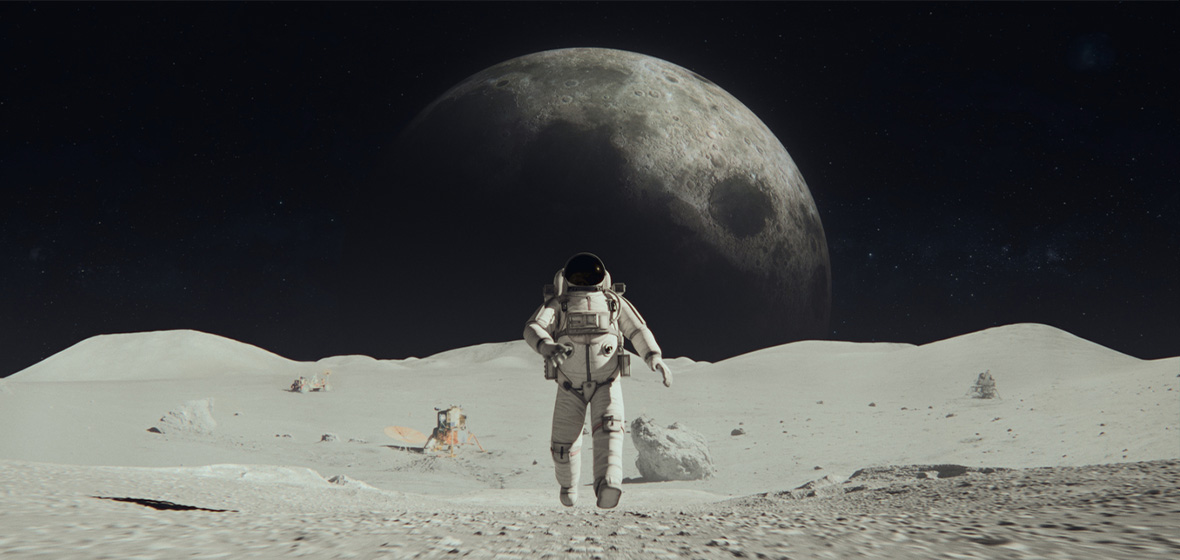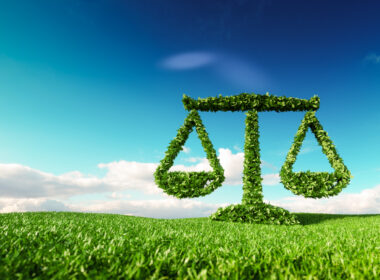Australia’s involvement in space stretches back tens of thousands of years; Aboriginal Australians were the world’s first astronomers. Now, with space activity heating up, we look at the international laws framing Australia’s ongoing activities on the final frontier.
The good news is we’re a lot closer to getting to space than we think, and not just because space-based technology influences our every action, from checking the weather to checking our bank accounts.
It’s also because space is becoming much more accessible to the everyday person, with space tourism tantalisingly close.
But it’s not all rockets and high airfares and freewheeling in anti-gravity. There are laws governing what can and can’t be done in outer space, just as there are here on planet earth.
An uptick in space activity
Australian lawyer and astronaut Kim Ellis Hayes, a self-confessed “space nerd”, contributed to the International Framework on Space Resource Activities, part of the global framework outlining the governance of outer space. She tells LSJ that regulation of global space activities is important for the “safety and cooperation” of those involved.
“We need to make sure that we’re conducting safe operations and we need to make sure that we can collaborate with other nations,” she tells LSJ.
And, as more private players enter the race for space, regulations help ensure equitable access for all too – and that those involved don’t ‘ruin it’ for everyone else, for example by contaminating the environment with junk materials.
“When you have such a big uptick in the amount of activity in space, like anything else, you have to have rules to make sure that you preserve the environment so everybody can continue to use it,” Ellis Hayes explains.
‘When you have such a big uptick in the amount of activity in space, you have to have rules to make sure that you preserve the environment so everybody can continue to use it.’
International space law consists of five global treaties, negotiated in the United Nations Committee on the Peaceful Uses of Outer Space (UNCOPUOS). Australia is party to all five: the Outer Space Treaty, the Moon Agreement, the Rescue Agreement, the Liability Convention and the Registration Convention.
The Outer Space Treaty provides governing principles for the exploration of, and operation in, outer space. As a party, Ellis Hayes says, Australia implements its obligations under that treaty through its national space legislative framework – in other words, the laws back home.
Discussions around uses of space continue at a high global level, Ellis Hayes explains, including around commercial uses of space and the moon in particular. These may require new agreements and treaties around how humans interact with their extra-terrestrial neighbours.
Professor Steven Freeland, Emeritus Professor at Western Sydney University and Professorial Fellow, Bond University, tells LSJ that, for the most part, the “fundamental principles” of international space law continue to work well, even in the face of the breakneck technological developments and growth in space activities of recent decades.
“We’ve got an international framework for space law … that has served us well, continues to serve us well, will serve us well in the future,” he says.

UNCOPUOS is the only United Nations Agency that has an express mandate to deal with space-related issues. Australia has been a member of the Committee since its inception in 1959. UNCOPUOS holds regular meetings and also has a number of subcommittees that look at more specific aspects of space law, as well as scientific and technical issues, in order to determine what principles need to be formulated or augmented.
Being a party to the five UN space treaties comes with obligations, and one of those is that, when private entities within Australia’s jurisdiction engage in space, they must act in consistency with the fundamental principles of space law, Freeland explains.
This has led to countries increasingly developing their own national space laws, because although the space treaties bind nations, they don’t bind non-governmental entities or individuals. The regulation of those falls to the country itself.
Domestic space law – managing the future
In Australia, domestic space law has been in existence since 1998 – our (relatively) small island was only the sixth country in the world to create domestic space law.
“I’m not sure many people here would have imagined that,” laughs Freeland.
He himself has had the honour of assisting more than 20 countries to develop their own national space laws, including Australia. Originally, Australia had planned to become a major launch platform for satellites, but these plans have not yet eventuated. Nevertheless, Australian companies, like Optus, were authorised under the 1998 law to launch their own satellites from overseas.
When private entities within Australia’s jurisdiction engage in space, they must act in consistency with the fundamental principles of space law.
As technology has changed, the barriers to entry into space have dropped, making space exploration much more attractive – and accessible –- to smaller companies and individuals. This led to changes to Australia’s space law, which had initially been directed at large companies. Individuals and smaller companies lobbied the government, and Freeland was appointed in 2015 by the relevant Minister to review the 1998 legislation.
Following Freeland’s report to government, and subsequent consultations, the law was changed in 2018 and the Australian Space Agency was created to oversee Australia’s space activity.
The path since then has been at times been challenging, Freeland concedes, but clear progress has been made under the Agency.
“There’s a great recognition that space is important, since it’s part of our critical infrastructure. And as we saw in the [recent] defence strategic review, it’s also a critical part of military infrastructure. There’s a clear recognition that space is crucial. There’s a desire to have Australian sovereign capability increased. But it’s hard. It takes time. It takes money. And sometimes you need to have initial failures from which you can learn and further develop capability,” he says.
He’s pleased to see the “great increase in interest” in space in Australia.
“You and I use space every day, 20 or 30 times, without even thinking about it. For weather forecasting, for agricultural management, for financial transactions, for transportation, for location services – for virtually everything. Space is not just ‘the future’ – it is mainstream now and so is the governance around it. Everything is guided by space technology. And literally, if we didn’t have space, we’d be back in the dark ages,” he explains.
A peaceful approach
But one of the things that makes the empty space above our heads so hard to manage is its geopolitical nature, largely due to its military and strategic importance.
Freeland is a member of the Australian delegation to UNCOPUOS and a Vice-Chair of a UNCOPUOS Working Group looking at the legal aspects of potential space resource activities. The key letter in the acronym is the P.
“That is important: ‘peaceful’,” he says.
Part of the mission of the Committee is to ensure that people around the world, even in less developed countries, are able to benefit from the uses of space.
He believes that one important element of Australia’s role is promoting the peaceful uses of space and the continued benefit that such use brings around the globe.
The Committee currently includes 102 countries and about 40 non-state Observers and is “growing rapidly”, according to Freeland.
And although the focus is peace, Freeland says it’s crucial to understand that space is a “dual use” area, incorporating not just commercial and civil uses, but also military uses.
“People have to understand that space is, from a legal perspective, an area that we all have a stake in,” he says.
The geopolitical aspect of space adds an extra dimension when you consider who the major players in space are. China, Russia, India, Canada, the United States, the UK, and Japan, according to Freeland, are some of the biggest users. Australia is a middle power, but one with strong alliances with larger countries. Geopolitical issues on the Earth can impact how space is used. There must be clear boundaries on how to protect outer space for the good of the planet, he says, explaining that an increase in orbital debris could have dire consequences for humanity.
Finding the right balance is vital, because to make space unusable or unnavigable has a bigger impact on everyone, and in particular the larger countries, by lessening their competitive advantage.
“There’s no winner in a war in space,” Freeland says, adding that this message needs ongoing promotion in the face of geopolitical tensions and increasingly strong rhetoric.
“There’s always a risk that we create a situation which is irreversible. You create more debris. More debris means there’s more possibilities of collision. More collisions means there’s more debris. And then you have this cascading effect, which becomes irreversible. And that’s a real possibility if we’re not careful, which is why we really need to understand on the one hand how important space is for national security and military, but balance thiswith a clear recognition that, without a sustainable space environment, your capabilities are severely impacted, let alone your ability to protect national security.”
‘We really need to understand how important space is for national security and military, but balance this with a clear recognition that, without a sustainable space environment, your capabilities are severely impacted.’
Ellis Hayes observes that geopolitics can sometimes hamper decision-making on space law, with occasional difficulty with getting nationals to get behind agreements.
For the benefit of all
There is talk of extracting resources from space for use on Earth.
Freeland doesn’t believe that’s likely to happen anytime soon, due to the technological, legal, economic, cultural and political questions that need to be properly addressed. The existing UN treaties also confirm that space is not capable of being appropriated by countries or their private entities.
However, interest in exploiting space resources has increased, and the Moon Agreement contemplates possible future “exploitation” of those resources, although there are only 18 countries (including Australia) that are party to it.
A goal of the UN Committee is to encourage countries to pass domestic space laws that comply with their international obligations.
“One of the fundamental principles of the Outer Space Treaty is that the exploration and use of outer space should be for the benefit of and in the interests of all countries,” Freeland says.
Of course, the use of space involves technology and concepts that don’t yet exist firmly in reality, but the fundamental treaty principles will also apply to those as they develop.
To complement this, with incoming technical and scientific data, rules and frameworks may be added that will clarify any additional issues that arise.




